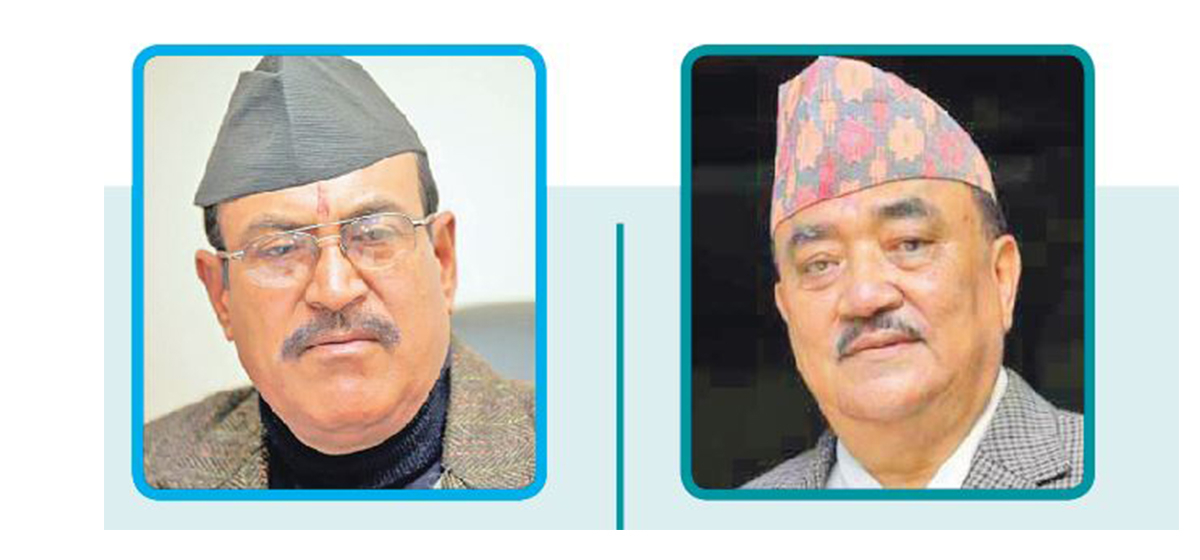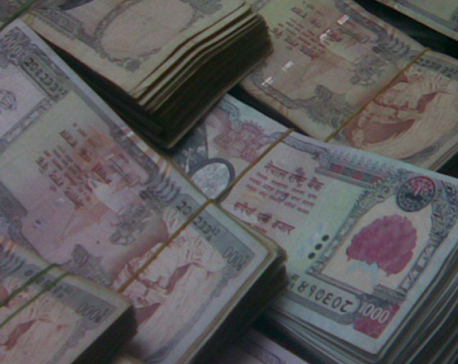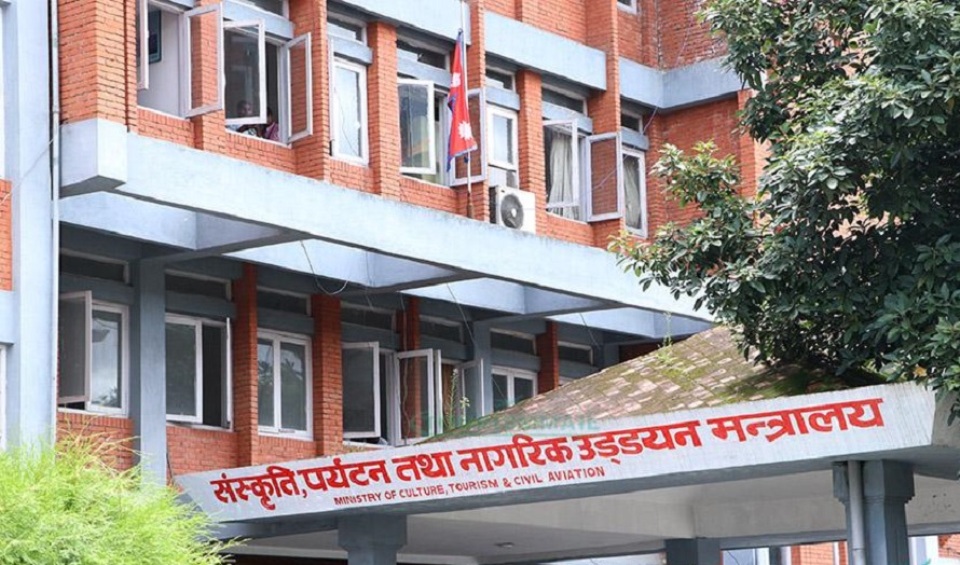
OR
Govt presents bill in parliament that, if passed, will help legalize illegal wealth
Published On: February 16, 2023 04:35 PM NPT By: Dilip Paudel

KATHMANDU, Feb 16: The government has proposed to amend the law so as to legalize unsourced wealth by paying tax. A bill has been presented in parliament to amend some laws related to the 'Prevention of Money Laundering and Promotion of Business Environment' to help legitimize the wealth illegally earned by top politicians, businessmen and corrupt government employees.
Law, Justice and Parliamentary Affairs Minister Dhruba Bahadur Pradhan presented the controversial bill in parliament on Wednesday. The bill, if passed as it is, will pave the way for laundering dirty wealth by paying tax. The bill has provisions to legalize property, whose source could not be established, by paying taxes.
A new provision has been inserted in the bill that says after the Inland Revenue Department (IRD) determines whether or not a tax offense has been committed, and if no such offense has been committed, the property of such a person shall be treated as their income of the current financial year and maximum tax as per the prevailing laws shall be levied on such property.
Gauri Bahadur Karki, former chairman of the Special Court, said that a law has been proposed to legalize illegally-acquired property. "A bill has been introduced to legitimize illegal assets," Karki said.
A joint bench of the Supreme Court ruled in 2067 BS that the source must be shown to legitimize property. "Everybody should show their source of property," said Karki, "This bill has been brought intentionally to benefit someone."
If one cannot show the source of one’s wealth, such wealth automatically becomes illegal, but the latest bill tabled in parliament has roundabout provisions that allow to legalize such wealth.
Although the provisions in Section 28 of the proposed bill have been amended to disclose the source of property, there is a conflicting provision in the subsection. In the course of an investigation into a crime related to money laundering - while investigating whether or not a person has committed the crime - if it is not found that the related crime has been committed, but the property of the person concerned is abnormal compared to his income sources or financial condition, or if it is seen that the person has donated, gifted, given away or lent someone financial help beyond his financial status, the source of his wealth should be demanded.
In the case where the sources of assets are not disclosed and the person under investigation is not being prosecuted for related crimes or money laundering, the bill proposes to keep records of the source of the assets and send them in writing to the IRD for tax assessment and collection. So, those who have acquired wealth illegally can take advantage of this legal loophole to legalize their illegally-earned assets easily just by paying taxes.
Meanwhile, Law, Justice and Parliamentary Affairs Minister Pradhan defended the bill in parliament. "There is a provision to determine the tax in the case of assets whose sources have not been revealed only when there is no involvement in money laundering or other related crimes, and there is no crime related to tax evasion," the Minister said in parliament, "Property acquired through criminal activities cannot be legalized." Minister Pradhan said that if there is property acquired through criminal activities, the case can be tried again after further investigation.
It is an international practice to declare wealth whose source cannot be established as illegal. Legal wealth always has a valid source. If there is no source of any wealth, it automatically becomes illegal. Sources claim that the government has brought the bill under the influence of the middlemen at a time when the country should be ruthless in dealing with money laundering. International bodies against money laundering are always watching if the country has not sought the source of income of not only domestic investment but also foreign investment. According to sources, international bodies are secretly investigating the illegally-earned wealth worth billions of rupees of some big business houses, so the government is trying to formulate such laws under the influence of those business houses.
In the bill, it has been mentioned that if it is found that a tax offense has been committed, the IRD should investigate the offense itself, and if the matter has to be investigated by another agency, the IRD should send a written report to such an agency for investigation. Similarly, according to the provisions of the bill, the name, surname, address of such a taxpayer should be kept on the website of the department and the details of his income and revenue should be sent to the department and the financial information unit.
In the budget of 2075 BS, a provision was made not to seek the sources of investment. It was removed by the Ministry of Finance in a short time after it was widely opposed. Financial experts say that after the provision of not seeking income sources for investment will pave the way for legalizing illegally-acquired wealth and the risk of black money entering the country will increase.
Similarly, if the system of not looking for sources of investment is implemented, the black money hidden in the country will not only gain legitimacy, but the country may face problems internationally.
Nepal is affiliated with international organizations that discourage money laundering and terrorist activities. Nepal is a member of the Financial Action Tax Force (FATF) and Asia/Pacific Group on Money Laundering. Under the leadership of these two organizations, work is being done to discourage money laundering and investment in terrorist activities around the world. These organizations have been accusing Nepal of failing to enact the necessary laws to prevent money laundering and investment in terrorist activities, and of failing to take action against those who acquire wealth illegally. Experts warn that if we do not do as they say, our membership will be revoked and the country can be blacklisted as well.
You May Like This

Legitimizing Money Laundering through Law!
The recent move by the government to table a bill in parliament with the aim to amend the law and... Read More...

Review the controversial bills
Protests have been going on against many of the bills registered in the parliament. ... Read More...








Just In
- NRM to announce two citizen heroes today
- Federal capital Kathmandu adorned before Qatar Emir's State visit to Nepal
- Public transport to operate during Qatari king’s arrival, TIA to be closed for about half an hour
- One arrested from Jhapa in possession of 43.15 grams of brown sugar
- EC to tighten security arrangements for by-elections
- Gold price drops by Rs 2,700 per tola
- Seven houses destroyed in fire, property worth Rs 5.4 million gutted
- Police pistol missing after drug operation in Bara, investigation underway








Leave A Comment